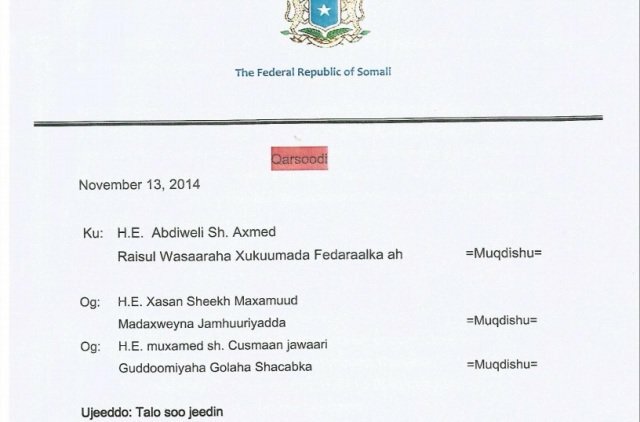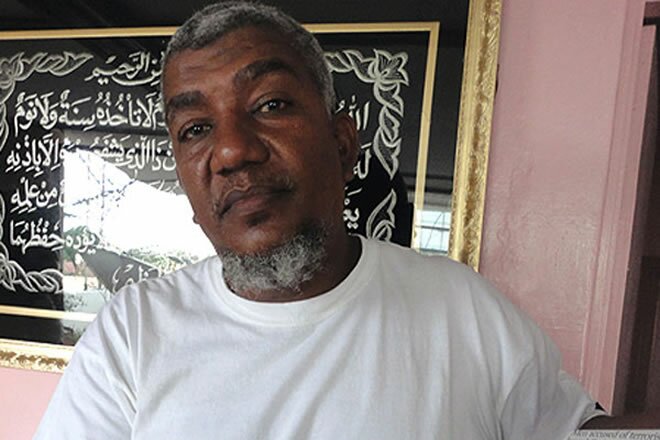Police patrol Kenyan port after Muslim cleric’s murder
Armed police patrolled the streets of Kenya’s port city Mombasa on Wednesday following the assassination of a prominent radical Muslim cleric who was buried as a martyr.
But Kenya’s second city — a key transport hub for East Africa and a popular tourist destination — was reported calm, with the slain cleric’s mosque having broadcast appeals for restraint among his supporters.
Killings of other radical clerics in recent years have led to running battles between police and Muslim youths.
The cleric, Abubaker Shariff Ahmed, was a vocal supporter of Osama bin Laden, and was on UN sanctions lists accused of being a “leading facilitator and recruiter of young Kenyan Muslims for violent militant activity in Somalia”, and of having “strong ties” with the leaders of neighbouring Somalia’s Shebab.
Better known as Makaburi or “grave” in Swahili, he had described last year’s attack on the Westgate shopping mall in Nairobi, which was claimed by the Al-Qaeda-linked Shebab, as “100-percent justified”.
An AFP reporter in the city said Muslim clerics’ appeals for calm rang out from loudspeakers at Makaburi’s mosque throughout Tuesday night, while similar calls were made on local radio stations during the day.
The mosque was deserted later in the day and its doors remained closed.
Senior police officer in Mombasa Richard Ngatia confirmed Makaburi had been killed by “unknown assailants” late on Tuesday.
Haniya Said Saggar, the widow of another radical cleric killed two years ago, Aboud Rogo Mohammed, accused the government of being behind the murders, claims they have rejected.
“The time my husband was killed and all the others were killed like this, what action did the government take? That’s what makes us say the government was behind the killings,” she told AFP.
Previous killings of clerics, including that of Aboud Rogo, have sparked deadly riots, with supporters clashing with the police.
There were inital angry scenes outside the police station where the body had been taken, and police fired into the air to push back furious supporters of the cleric.
- Call for calm -
But while there was a tense atmosphere and security forces had deployed in large numbers — including putting extra armed guards around key churches in flashpoint areas — Mombasa was calm.
“We condemn this extra-judicial killing… these killings have to stop,” said Sheikh Muhdhar Khitamy, regional chairman of the Supreme Council of Kenya Muslims.
“However, we call for calm and for people not to react with violence,” he added.
US Ambassador Robert Godec said he deplored the recent violence on the Kenyan coast — both Makaburi’s murder and the attack on a church last month, calling for “calm and restraint” and “the need to prevent the spread of violence”.
British High Commissioner Christian Turner said it was “vital” authorities conduct “full investigation” into the killings.
Makaburi, dressed in white robes, was shot in the chest. Another young man was also shot dead alongside him.
Makaburi was buried shortly after midnight and hailed as a “martyr”.
A prominent leader, Makaburi presented himself as a simple man promoting “true Islam”, and said the best examples of it were to be found in parts of Fallujah in Iraq, Taliban-controlled Afghanistan and Shebab-held areas of Somalia.
The Shebab have made repeated threats against Kenya, whose troops are in Somalia battling the Islamists as part of an African Union force.
The killing of Makaburi comes just over a week after six worshippers were shot dead in Likoni near Mombasa, prompting a fresh crackdown by Kenyan security forces and renewed talk among officials of a “shoot-to-kill” policy.
It also came the day after another six people were killed in bomb attacks in Nairobi’s densely populated Eastleigh district, with police making sweeping arrests of more than 650 people.
Police safely defused another roadside bomb near Eastleigh on Wednesday.
Amid fears of worsening security and attacks by Somali insurgents, Kenya last month ordered all refugees — most of them Somalis — to report to two overcrowded camps, a move criticised by rights groups and the United Nations.
AFP
Comments
comments
 Calendar
Calendar





































